Confirmed summer school lecturers include Arnaud Bertrand (IRD-MARBEC), Barbara Franco (CIMA, IFAECI), Heino Fock (TI-SF), Lynne Shannon (UCT), Ralf Schwamborn (UFPE), Sophie Lanco-Bertrand (IRD-MARBEC).
The following speakers are part of our summer school:
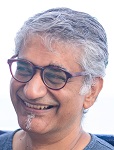
Ajit Subramaniam
Ajit Subramaniam is a microbial oceanographer at the Lamont Doherty Earth Observatory of the Columbia Climate School at Columbia University in New York City. He is interested in advancing our ability to observe the ocean and expand our understanding how the marine ecosystem works and can be managed, with a focus on studying the functional diversity and productivity of phytoplankton: why does a particular phytoplankton species grow where it does, the factors that lead to its demise, the consequences of phytoplankton blooms, and how these might change in the future as a result of anthropogenic activity and climate change.
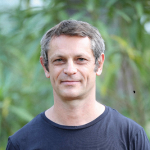
Arnaud Bertrand
Dr. Arnaud Bertrand is a Senior Scientist at the French National Research Institute for Sustainable Development (IRD). He is also an Honorarium Professor at the Universidad Nacional Mayor de San Marcos in Peru and a Visiting Professor at the Universidade Federal de Pernambuco (UFPE) and the Universidade Federal Rural de Pernambuco (UFRPE) in Brazil. Arnaud is currently co-coordinating the Franco-Brazilian IJL “Tropical Atlantic Interdisciplinary Laboratory on physical, biogeochemical, ecological and human dynamics” (TAPIOCA). Although specialized in the use of active acoustics to extract simultaneous information on a variety of biotic and abiotic components (‘ecosystem acoustics’), his research is mainly transdisciplinary. Indeed, in collaboration with colleagues from a variety of disciplines, he develops holistic approaches to study ecosystem processes, human included, from wind to plate.
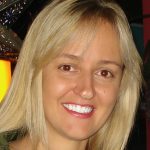
Bárbara Franco
Bárbara Franco is a Research Scientist at Centro de Investigaciones del Mar y la Atmósfera (CIMA) and Institut Franco-Argentin pour les Études du Climat et ses Impacts IFAECI (CNRS-CONICET-UBA-IRD), Argentina. She holds a PhD in Physical Oceanography at Universidad de Buenos Aires (Argentina) and a Bachelor in Oceanography at Universidade Federal do Rio Grande (Brazil). Currently her main research interests are the climate change impacts on the ocean, fisheries, and the conservation of marine species.
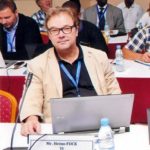
Heino Fock
Heino Fock is head of the Marine Ecosystems Research Group of the Thünen Institute of Sea Fisheries. His research interests include climate change effects of fish assemblages, trophic ecology of fishes, and functional ecology of deep-sea and mesopelagic fishes. He has a strong commitment to capacity building and is lecturing in the WASCAL Master course on Climate Change and Marine Science, Mindelo. He was PI in several projects and is currently leading work packages in 2 projects (CEM_CV in Cabo Verde; H2020 TRIATLAS for the Southern Atlantic) and co-leads WP5 in SPACES TRAFFIC, Benguela Current system.
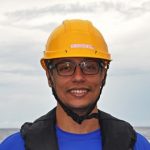
Leandro Nole Eduardo
Leandro N. Eduardo is a TRIATLAS postdoctoral Research associate at MARBEC. He is interested in the biodiversity, biogeography, ecology, and conservation of deep-sea species. His work mainly focuses on multidisciplinary approaches in the Western Tropical Atlantic. Leandro has also acted as an all-Atlantic youth ambassador, developing outreach activities in at least four countries. The researcher represented Brazil and TRIATLAS on several occasions, including an outreach event organized by the Nobel Foundation and the all-Atlantic forum held in the European Commission.
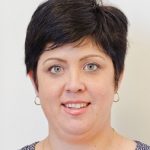
Louise Gammage
Louise Gammage is an environmental geographer specialising in marine sustainability. She works in inter-and transdisciplinary contexts and is interested in developing transformative methodologies and tools to promote system-based governance. Her current research focuses on marine social-ecological systems (SESs) and fisheries in South Africa. Louise’s research interests include exploring innovative methodologies to address challenges related to scale and decision-making in complex adaptive systems; understanding drivers of change in SESs to improve present and future decision-making; and exploring ways for local stakeholders (such as fishers) to build capacity to enhance well-being, while informing governance and policy at the larger decision-making scales.
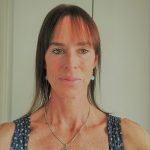
Lynne Shannon
Lynne Shannon is a Fisheries Scientist specialized in ecosystem-based management, with expertise in ecosystem modelling and the use of ecological indicators as a means of addressing ecosystem considerations in exploited marine ecosystems. Lynne has twenty-three years’ experience undertaking ecological research and modelling to contribute to ecosystem-based management, and eighteen years of postgraduate student supervision. She has constructed trophic models in the Benguela to provide an understanding of structure and functioning and changes in the marine food webs. Her work aims to facilitate pragmatic ways in which ecosystem considerations might be incorporated into fisheries management, especially the use of ecological indicators.
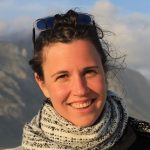
Marie-Lou Bacherely
Marie-Lou Bacherely is a Postdoctoral fellow at Geophysical Institute (GFI) of the University of Bergen (UiB), Norway. She holds a PhD in Physical Oceanography and a Bachelor in Applied Physics and Mathematics at the University of Toulouse, France. Her main research interests cover the dynamics of the Benguela upwelling system, its connection to the equatorial variability, the phenology of extreme Benguela Nino and Nina events as well as their predictability in climate system.
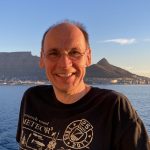
Peter Brandt
Peter Brandt is Professor for Physical Oceanography at the University of Kiel and the Helmholtz Center for Ocean Research Kiel. His interest is in the ocean’s role in the climate system. His work focusses on ocean processes from small to large scales including internal waves and mixing, eddies, planetary waves, variability of the wind-driven and thermohaline circulation and on climate biogeochemistry interactions. He led several research cruises into the tropical Atlantic focussing, among other, on tropical upwelling regions and oxygen minimum zones.
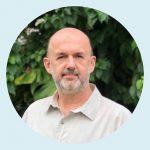
Ralf Schwamborn
Ralf Schwamborn is an Associate Professor at the Dept. of Oceanography of the Federal University of Pernambuco (UFPE) in Recife, Brazil. He supervised BSc., MSc., and Ph.D. theses in the areas of zooplankton ecology, decapod crustacean larvae, size spectra theory, microplastics, mangrove ecology, seagrass beds, reef ecosystems, and oceanic island ecosystems. From 2005 to 2008, he was working on the upwelling ecosystems off Peru and Chile in the context of the EU-funded project CENSOR, being based at the Alfred Wegener Institute, Helmholtz Centre for Polar and Marine Research (AWI Bremerhaven). At UFPE, he currently teaches Basic Statistics, Trophic Ecology, Methods of Food Web Modeling, and Advanced Statistics using R. He is involved in numerous research projects, such as the Brazilian marine research network Inct Ambtropic, the JPI-Oceans-funded project MicroplastiX, the EU-funded projects PADDLE and TRIATLAS and the development of the fishboot R package.
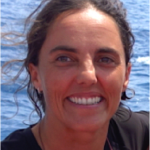
Sophie Lanco-Bertrand
Sophie Lanco-Bertrand is a senior researcher in marine ecology at IRD. She is interested in how fish, birds, mammals and fishermen occupy space at sea, using biologging techniques and movement ecology models. The aim is to understand whether planning rules for human activities at sea, such as Marine Spatial Planning, could allow for better cohabitation between animals and humans. She has worked for 15 years on the Peruvian coastal ecosystem and is currently developing her research in the tropical Atlantic (particularly in the Brazilian Northeast and Cuba).
